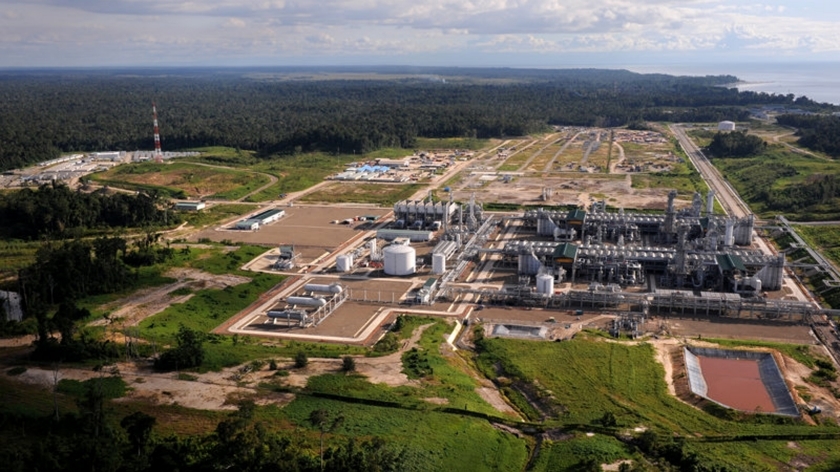
Proposed new regulations signal that the Indonesian government appears to have recognised the importance of supporting carbon capture and storage (CCS) schemes. Such regulations will be crucial to encourage major companies, such as BP and Repsol, to invest in significant new upstream production in Indonesia.
Energy demand is set to balloon in Southeast Asia’s largest economy. But Indonesia faces a conundrum with its energy strategy. The government has made an unconditional emissions reduction pledge of 29% from the business-as-usual scenario by 2030, or 41% with international assistance, as stipulated in its climate action plan under the Paris Agreement. Yet, at the same time the government is also targeting to double upstream production rates to meet expanding demand in the world’s fourth-most populous country.
Both targets are significantly challenging in isolation, more so combined.
Still, Indonesia is desperate to boost upstream investment, particularly in natural gas production. However, companies such as BP and Repsol, that are considering new upstream investments in the country, will not invest without associated CCS projects to keep their emissions profiles in check.
Both companies have pledged to be net zero by 2050 or sooner. They have set decarbonisation pathways with intermediate targets between 2020 and 2040. Their investments must meet stringent plans in alignment with the energy transition to limit the planet’s temperature rise to well below two degrees Celsius in line with the Paris Agreement’s climate goals.
BP and Repsol have both proposed CCS schemes that will need government approval before they commit to more new major upstream investments in Indonesia. But the upstream regulator SKKMigas has been wary of CCS proposals due to the potential costs involved that would reduce government revenue, particularly under cost recovery contracts.
Moreover, Indonesia has been slow to embrace the energy transition as the global economy shifts away from carbon-based energy. However, that could be about to change.
In recent years the ministry of economic affairs and ministry of the environment have been lobbying for CCS, but they were unable to gain traction. However, positive progress has been made over the past six months, especially under the current director general of oil and gas at the ministry of energy and mineral resources, a source close to the ministry told Energy Voice.
The director general, Tutuka Ariadji, who is also a professor of petroleum engineering at Indonesia’s widely respected Bandung Institute of Technology, has carried out studies on the potential of CCS in Indonesia. As a result, he is very supportive of the technology, which has changed the whole dynamic within the government.
Tutuka is now pushing SKKMigas, which appears increasingly interested in CCS, to support the technology, despite the associated costs involved. “Cost remains an issue, but crucially the intention to make it work is there,” said the source.
Positively, the government is currently drafting regulations on CCS. The regulation is expected to be able to support stakeholders in developing CCS technology in Indonesia, not only from the aspects of safety, but also economics, Tutuka said in a statement on 25 May.
Tutuka said CCS technology can significantly cut greenhouse gas emissions while simultaneously increasing oil and gas production through enhanced oil recovery (EOR) or enhanced gas recovery (EGR).
He added that the CCS regulation is being drafted by the CCS/CCUS Centre of Excellence at the directorate in cooperation with the Asian Development Bank (ADB).
Still, as one industry source cautioned “usually Indonesia knows what it wants, but not how to get it.”
Significantly, Indonesia will need international support. Aside from the ADB, Indonesia is cooperating with the International Energy Agency (IEA) to develop a blueprint for renewable energy and carbon pricing.
The government has said that carbon pricing regulations being drafted will allow carbon captured by CCS to be priced and traded.
Last week the finance ministry released a document outlining the economic framework and fiscal policies for next year, it said a carbon levy could be applied to fossil fuels and emissions released by factories or vehicles, as well as “carbon intensive” industries such as pulp and paper, cement, power generation and petrochemicals.
Meanwhile, on a recent trip to the US, Indonesia’s minister of state-owned enterprises Erick Tohir, met with ExxonMobil to explore possible cooperation in CCS technology between the US giant and Indonesian national oil company (NOC) Pertamina. Pertamina said potential cooperation would help boost recovery at the NOC’s mature fields and cut emissions.
Still, Indonesia will need to work hard and fast to incorporate CCS projects into its upstream landscape. Global investors, particularly the likes of BP and Repsol, are increasingly focused on achieving a pathway to net-zero emissions. Both companies are committed to investing more in Indonesia, but to do this they will need to see real progress around the carbon economy and associated regulations.
Italian major Eni is also an active player in Indonesia’s upstream landscape and is considering significant new investments in the country. Eni has also pledged a low-carbon strategy to achieve carbon neutrality by 2050.
And it’s not just the European majors. Even the big US oil companies, which have been more reluctant to make climate change commitments, could soon change tack. Last week activist investor Engine No.1 won at least two seats on ExxonMobil’s board, which is likely to force the US giant to take climate commitments more seriously.
Ultimately, if Indonesia wants to see new major upstream investments, it will need to adjust to the new global reality around the energy transition.
BP’s proposed CCS project in Indonesia
BP is currently expanding its Tangguh liquefied natural gas (LNG) export complex in West Papua. A third liquefaction train is being built as part of the first phase of the current expansion plan and due to start-up in 2022.
Under the present two-train configuration, Tangguh can produce 7.6 million tonnes per year (t/y) of LNG with carbon dioxide (CO2) emissions hitting 4.6 million t/y. The CO2 emissions of the third train, which will raise overall production capacity to 11.4 million t/y, are expected to reach 3 million t/y, according to upstream regulator SKKMigas.
Under phase two of BP’s current expansion plan the supermajor would build a CCS project and develop its Ubadari field. The aim of phase two is to cut emissions and boost production to keep all three trains running at full capacity.
SKKMigas reported that BP’s proposed CCS project would cut Tangguh LNG’s emissions by around 45%.
The CO2 produced at Tangguh will be injected into depleted fields for storage and enhance upstream recovery.
Repsol’s proposed CCS project in Indonesia
Spain’s Repsol aims to capture 2 million t/y of CO2 starting in 2026 as part of its proposed Kali Berau Dalam (KBD) onshore gas development. The field in the Sakakemang Block onshore Sumatra, which holds an estimated 2 trillion cubic feet of gas, discovered in 2019 is one of Indonesia’s biggest finds in nearly two decades.
Repsol, which operates the Sakakemang Block, said it is studying the potential to inject CO2 into the Dayung and Gelam fields within the nearby ConocoPhillips-operated Corridor Block. Repsol holds a 36% stake in Corridor.
Repsol hopes that all the CO2 produced from the future development of its entire Sakakemang field, as well as CO2 produced by Corridor, can be captured and re-injected, leading to a substantial decrease of Indonesia’s emissions.
Pertamina’s pilot CCS scheme
Pertamina is already working with Japan’s J-Power on a small-scale pilot CCS project at the Gundih gas field in Central Java. When it starts up in late 2024, it will be Indonesia’s first carbon capture, utilization and storage (CCUS) scheme. Is to be developed using a Joint Credit Mechanism between a Japanese consortium, the Indonesian government and Pertamina. Under the mechanism, the entire capital expenditure will be covered by the Japanese side, while the operational expense will be footed by the Indonesian side. Capital expenditure for the proposed project is estimated at $49 million with operational expenditure projected at $20 million.
The Gundih CCS project will sequester about 800 tonnes per day of CO2 over ten years.

 © Shutterstock / Odua Images
© Shutterstock / Odua Images